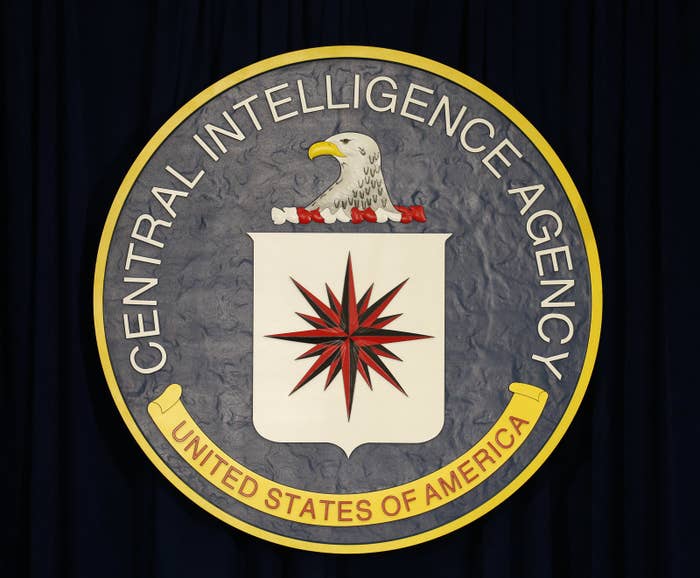
With CIA Director Mike Pompeo promising to make his agency more “vicious,” the Trump administration has elevated to a key White House position a CIA officer who, according to two sources, once worked on a secret CIA assassination program meant to target terrorists.
At the time, the sources say, the program was contracted to Erik Prince, the controversial security contractor whose sister is Donald Trump’s education secretary. Sources say there is no evidence anyone was ever killed under the program.
The official, Michael Barry, became the National Security Council’s chief intelligence officer in September and is the primary liaison between the NSC, which coordinates US national security policy, and the CIA.
The CIA says it is a “false premise” to suggest that there is any link between Barry’s new NSC responsibilities and his work 12 years ago on the assassination program.
But the timing of his appointment is sure to bring scrutiny both to Pompeo’s plan to unleash his agency in new ways and to reported efforts by Prince to persuade the Trump administration to hire his companies to fight in Afghanistan.
“That connection of Barry’s is very concerning to me,” said one former intelligence official.
Prince, whose sister is Education Secretary Betsy DeVos, was the principal contractor for the secret CIA assassination program when Barry was involved, according to two sources familiar with the undertaking.
Barry’s involvement with the program has not been reported previously.
The program was begun shortly after the Sept. 11, 2001, terrorist attacks, the sources said. It was contracted in 2004 to Prince, who hired the CIA officer who had initially designed it. Prince was removed from the program in 2006, and it was disbanded in 2009, after Barack Obama became president.
The assassination squads were separate from the CIA’s better-known program to kill terrorists with armed drones.
Prince is a former Navy SEAL who founded a security company, Blackwater, that was embroiled in a series of scandals over its work in Iraq, where it provided security for US diplomats and was accused of killing dozens of innocent Iraqis in confrontations. He currently runs a security and logistics company affiliated with the Chinese government, but continues to have access to the Trump White House through his close friendship with former Trump adviser Stephen Bannon and his relationship to DeVos.
Barry’s move to the White House came in late September just weeks before CIA director Pompeo gave a little-noticed speech pledging a “much more vicious agency.” “We’re going to be going to some of the hardest places with the hardest people in our organization to crush it,” he added, speaking about terrorism. He has previously promised to be more aggressive, and the CIA is said to be ratcheting up its operations in Afghanistan.
In September, NBC News reported that the Trump administration wants to expand the CIA’s authority to conduct drone strikes. On the campaign trail, President Trump promised that he would do “worse than waterboarding” to suspected terrorists, and he suggested killing terrorists’ families as reprisals for attacks. So far, though, there is no evidence that such drastic measures have been implemented.
Barry did not return phone messages left at his home and office.
CIA spokesperson Ryan Trapani would not comment on Barry’s precise role in the contract assassination program, but did not challenge the assertion that he played a role in it. He emailed a statement that read, in full, “Your story is based on a false premise and faulty reasoning leading to an incorrect conclusion.”
The NSC declined to comment.
A spokesperson for Prince said he would not comment, and Prince did not respond to a voice message and a text sent to his personal phone.
Prince’s old affiliation with the highly classified CIA assassination program is one of the most mysterious parts of his career history. The program, which President Bush started shortly after 9/11, was intended to develop a way to kill suspected terrorists who could not be hit by drones.
Drones leave a huge signature and make news when they kill people. When first conceived, according to one book on the assassination program, called How to Get Away With Murder in America, the early concept was different from drone killing because it “was developed for occasions when the government needed to kill people with precision, without getting caught.”
Prince himself talked about it extensively to Vanity Fair magazine, saying he was bitter that his role in it had been disclosed by others. He said, “We were building a unilateral, unattributable capability.”
The former CIA official said Prince made it clear that he personally wanted to take shots at terrorists.
“Erik was upset we pulled off his team,” said the former official. Prince’s contractors were given severance packages, and the CIA took direct control of the program.
Soon the entire effort was reconstituted, this time run by CIA officers directly. By then, Barry no longer was associated with it, the two sources familiar with his role said.
Barry stepped into the role of senior director for intelligence programs at NSC in September, a month after the previous director, Ezra Cohen-Watnick, resigned. Insiders say it’s a bureaucratic coup for the CIA to have one of its own there.
“That position is a very important,” said one longtime CIA officer. “It’s like the bureaucratic link between CIA and NSC.”
